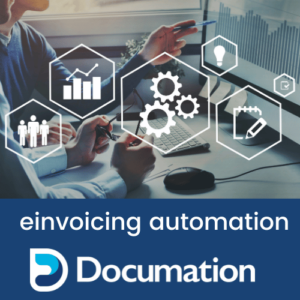The Importance of Automating Your Accounts Payable Processes
Accounts Payable (AP) automation refers to the use of technology and software to streamline and automate the processes involved in managing and paying vendor invoices.
AP automation has been used by finance teams in the form of ERPs since the 1990’s and has developed over the years to be a powerful and essential tool. Throughout this evolution, the primary goals of AP automation have remained consistent: to improve efficiency, accuracy, and visibility in accounts payable processes, ultimately allowing organisations to make more informed financial decisions. As technology continues to advance in today’s landscape, AP automation is expected to further refine and enhance its capabilities and now includes Ai and machine learning to enhance a data capture and automate decision-making processes, providing more intelligent insights to your AP department.
Why AP Automation is Important for your Business – 7 Benefits
AP automation is important because it enhances operational efficiency, reduces costs, minimises errors, improves compliance, and allows organisations to make more strategic decisions. It plays a crucial role in modernising financial processes and contributes to the overall success and competitiveness of businesses.
1. Efficiency, Time & Cost Savings
Automation reduces manual data entry, approval routing, and other time-consuming tasks, leading to faster processing times. It helps in reducing costs associated with manual processes, such as paper, printing, postage, and manual labour. Fewer errors mean fewer resources are spent on resolving discrepancies and correcting mistakes.
Automated systems minimise the risk of human errors, such as data entry mistakes or incorrect calculations.This accuracy ensures that financial records are more reliable and reduces the likelihood of compliance issues. Employees can focus on more strategic and value-added tasks rather than spending time on routine and repetitive activities.
2. Enhanced Visibility and Reporting
Automation provides real-time visibility into the status of invoices, approvals, and payments. Bottle necks can be identified and resolved and further processes put into place to ensure the delays in workflow do not reoccur.With real-time data and accurate reporting, finance teams can perform better financial forecasting and analysis. This includes predicting future cash flow, analysing spending patterns, and identifying areas for cost savings.
AP automation solutions often come with robust reporting tools that allow finance teams to generate customised reports based on various parameters. This flexibility enables the creation of reports tailored to specific business needs and compliance requirements. Finance teams can set KPIs that are business relevant and report on specific metrics relevant to their processes and the requirements of the management team and wider business.
3. Streamlined Approval Workflows
PO invoices become a touchless process, with coding, approvals and posting to finance system all automated from the PO source. Non PO invoices are routed to the right individuals for approval, reducing bottlenecks and speeding up the overall process. Machine learning and Ai can help with coding either at approval stage or back with AP team, suggesting relevant options and favourites based on previous actions and selections. Electronic approvals can be tracked easily, and stakeholders can be notified promptly, improving collaboration.
4. Integration with Financial Systems
AP automation platforms often integrate seamlessly with financial systems, such as Enterprise Resource Planning (ERP) software. This integration ensures that AP data is synchronised with the overall financial ecosystem, providing a holistic view for finance teams. Integration can be in different forms, from a flat file import to a full 2 way API integration. With the development of cloud hosting solutions this integration can be managed with minimal involvement of the organisation’s IT team which helps speed up the implementation process.
5. Vendor Relationship Management
Faster payments and accurate processing contribute to better relationships with vendors. Automation allows for early payment discounts to be captured, further incentivising prompt payments. AP automation enables finance teams to take advantage of early payment discounts. The system can automatically identify opportunities for early payment, contributing to cost savings for the organisation. Changes to master data can be verified, helping prevent fraud and ensuring clean and accurate data records.
6. Compliance and Security
Automated systems often come with built-in compliance checks, ensuring adherence to regulatory requirements and company policies. Secure electronic storage of documents provides a reliable audit trail. AP automation provides secure electronic storage of documents, reducing the risk of lost or misplaced invoices.
7. Scalability & Strategic Decision-Making
As businesses grow, manual processes can become cumbersome. AP automation systems are scalable and can adapt to increasing transaction volumes, making them suitable for both small businesses and large enterprises. With more accurate and timely financial data, organisations can make better-informed decisions. AP automation allows financial leaders to focus on strategic initiatives rather than being bogged down by administrative tasks.

How Documation can Transform your AP Processes
Documation’s AP automation solution helps customers across all industries, worldwide. The powerful solution works with multiple currencies and languages, offering integration with numerous different finance systems all within one solution.
The solution can be built in a modular format, starting with solving the biggest challenges, and then rolling out more complex features. If data capture is an issue then the starting with Documation’s Intelligent Capture engine to capture data and documents and posting to finance system will get the team up and working, freeing up time to make a plan for further automation. Then add in PO and non PO workflow and the invoices can be received, captured, coded and approved within minutes of arriving in the inbox.
The finance team have full visibility every step of the way without having to monitor or chase invoices through the system. Approvals for Non PO invoices are managed by the automated workflow, sending messages to relevant approvers and automatically chasing the approval until complete. Mobile approver apps make invoice approval on the go simple, without having to login to the browser and search. PO invoices are posted to the finance system in a touchless process, according to preloaded business rules.
The power BI module gives real-time reporting options with preset reports ready to use and the option for the users to create their own templates for precise, accurate and relevant KPI reporting.
Fully Supported Systems to Suit your Business
The team at Documation prides itself on developing a deep and powerful solution as standard, with configurable options to work for with business. No matter how complex your organisation’s needs are, we can provide you with a robust, fully supported automation solution that works how you need it to – no workarounds. Our team are on hand to advise on best practise at the design stage and then support your finance team when you need it.
If you are considering AP automation and would like some help with a business plan, why not check out our blog on Maxing the ROI of your AP processes or better still get in touch with the Listening Team – we are here to help!
Summary
In summary, accounts payable automation offers a range of benefits, including increased efficiency, cost savings, improved accuracy, better visibility, streamlined workflows, enhanced vendor relationships, and compliance assurance. Organisations that embrace AP automation can gain a competitive edge by optimising their financial processes and focusing on strategic initiatives.





